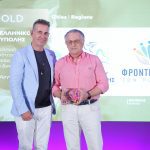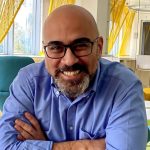Written by Konstantinos Tachtsidis
There are children who cannot concentrate in the classroom, but also at home studying their lessons or completing their assignments.
There are children who are constantly abstract , who daydream , who are characterized as lazy .
There are children who may have a particularly high IQ, but are unable to process simple verbal instructions because their minds are constantly “racing”.
There are children who are impulsive , full of thirst for new knowledge, but also risky experiences.
There were children who had Attention Deficit Hyperactivity Disorder (ADHD) , but were never diagnosed until much later, when guilt, stress, and anger had taken over.
Adults with ADHD… were once children who grew up undiagnosed .
I know because I’m one of those kids.
What exactly is ADHD?
But let’s start with the basics.
So what is the famous ADHD , that is, Attention Deficit Hyperactivity Disorder ?
ADHD is a neurodevelopmental variation of the human brain that affects millions of people worldwide.
According to scientific research, a key element of people with ADHD is the disruption of the production of neurotransmitters such as dopamine , which has the property of transmitting messages to nerve cells, causing feelings of reward , satisfaction and euphoria .
The lack of dopamine results in people with ADHD having significant difficulty concentrating , completing their tasks , and correctly perceiving the sense of time , while they are impulsive and often inattentive .
People with ADHD are characterized by constant procrastination , while also having difficulty with their executive functioning , social relationships, and regulating their emotions .
ADHD, this (un)known
Because inattention , impulsivity , and hyperactivity are considered common characteristics of childhood, this results in the diagnosis often being overlooked .
Thus, juvenile ADHD often remains undiagnosed or misdiagnosed, while even when the correct diagnosis is made, a holistic model of therapeutic approaches that its treatment requires is not always applied.
The lack of prevention and diagnosis is extremely problematic in Greece.
This is exactly how we get to the point where many people are diagnosed with ADHD, even when they reach 40-50 years old, considering until then the consequences of the disorder as something completely normal.
Child with ADHD, 40 years old
Personally, I was diagnosed with Attention Deficit Hyperactivity Disorder (ADHD) about 3 years ago. In my 40s.
So suddenly the pieces of the puzzle of my life came together and formed a clear picture.
Everything seemed to make sense.
Ultimately my brain was “wired” differently.
It was the solution to a complex puzzle that had plagued me all my life.
What’s wrong with me? Why can’t I concentrate? Why don’t I think and behave like everyone else?
Why am I having so much difficulty with my studies, my work, my social relationships?
Why do I get bored so easily?
Why do I have so many hobbies?
Why the hell have I always been an inadequate version of myself?
- ” If you tried to concentrate on class, you would be one of the best students .”
- ” It’s a shame you don’t try a little harder .”
- ” Smart kid, but he doesn’t pay attention at all in class, he’s in his own world “
- ” It’s a shame he doesn’t use his potential, he’s a bit lazy .”
The above are just a few of everything I (my parents and I) heard from teachers and professors as a student.
I could never have imagined that I would be diagnosed with Attention Deficit Hyperactivity Disorder (ADHD).
For years, I struggled with difficulty concentrating, impulsivity, procrastination, and disorganization, but I always blamed it on my busy work schedule, the demands of my career, my unique way of thinking, and most importantly, the fact that no one understood me . It was only when I reached a breaking point and sought help that I learned that all of these daily challenges were actually symptoms of ADHD .
On the other hand, accepting the diagnosis was an emotionally difficult process . It was a mixture of relief and self-acceptance along with anger, shame, and embarrassment.
I couldn’t believe that I had gone my whole life without knowing that I had ADHD . I felt like I had let myself and the people around me down. That I had wasted so much time struggling 24/7 when I could have dealt with it sooner and accomplished so much more.
But as I began to learn more about ADHD and how it affects people, I realized that I was clearly not alone.
Many people with ADHD remain undiagnosed for years , if not their entire lives. Even when diagnosed, people often face a lack of understanding and support from family, friends, partners, and their work environment .
The people around me have put up with a lot. The keys I kept losing had become a joke. My colleagues were always stunned by the -industrial-scale- mess of my office and my computer desktop, which was like the one full of double-parked cars on Veikou Street in Galatsi. I forgot appointments and had difficulty concentrating on things that didn’t interest me. The concept of “bored” was -almost biologically- unbearable for me. I had to constantly find new challenges for my brain to produce the much-needed dopamine.
Neurodifferent people are people with “superpowers” – Ending the stigma
One of the most important things I realized after my diagnosis is that ADHD is not a set of character flaws .
It’s a neurodevelopmental challenge that affects the way the brain processes information. And while it can certainly make some tasks more difficult, it can also be a source of creativity, innovation, thinking “outside the box” (perhaps to be more precise… there usually is no box) , tremendous energy, and a passion for new knowledge, developing new skills, and creating.
For me, coming to terms with my ADHD was a journey of self-acceptance. I learned to further develop my strengths and find strategies to limit my weaknesses.
And most importantly? I learned that I’m not alone on this journey. There’s a whole community of people who completely understand what I’m going through and who are there to support me.
This is why it is so important to raise awareness about adult ADHD – and other neurodevelopmental differences such as dyslexia, Asperger’s syndrome, etc. – and to de-stigmatize this normal brain variation.
ADHD is a motivation disorder . If something is boring to a person with ADHD, they probably won’t even bother with it. Conversely, if something interests them, they will devote themselves to it so efficiently that they will probably do much better than the average neurotypical person.
This “superpower” is called hyperfocus . It is the only case where ADHD becomes an advantage.
That’s why you rarely see someone with ADHD doing a job they don’t like. Their brain variation makes them incapable of doing something they don’t find interesting.
Plot twist: ADHD is not attention deficit, it’s the exact opposite
And yet, the terminology ” Attention Deficit Disorder ” is misleading.
In fact, it’s just the opposite.
People with ADHD don’t have attention deficits. The problem is that they pay attention to everything. Every external and internal stimulus is an occasion for hundreds of thoughts and new ideas that travel in fractions of a second to the brain’s neurons.
None of the ADHD brains have an “attention deficit.”
We don’t have an attention deficit, we have trouble regulating and focusing our attention.
We have a Ferrari stuck for hours in traffic on the highway during the return of Easter excursionists.
It’s like watching 20 channels on TV at the same time and losing the remote control.
It’s like trying to drink water from a fire hydrant.
It’s not just an application in our brain that works differently. It’s the entire operating system. .
And it affects every aspect of our lives.
Not everyone has a little ADHD – The importance of early diagnosis
ADHD is real. Talking about it is important… and no, not everyone has a little ADHD.
The diagnosis gives meaning to people with ADHD. It offers confidence, relief, and tools to deal with this challenge.
The diagnosis offers hope to people who have never been able to unlock their extraordinary potential .
If you are reading this and you also have ADHD, I want you to know that you are not alone. You are capable of achieving great things. In fact, your ADHD may even give you a competitive advantage in some areas.
Help is available. Don’t let the stigma of ADHD stop you from getting the support you need.
(Contact the Panhellenic Association of People with Attention Deficit Hyperactivity Disorder – adhdhellas.org ).
Together we can work to de-stigmatize ADHD and create a more understanding and supportive world that embraces and celebrates neurodiversity.
Epilogue
Living with ADHD is a daily battle, one that I’m not always sure I’ll win.
There are days when I feel like I’m drowning, lost in an ocean of thoughts. I struggle to keep up with deadlines and other people’s high expectations of me, and it feels like everything around me is moving at 300 kilometers per hour.
But there are also days when I feel like I’ve conquered the summit of Everest.
Days when my mind is clear, I do things that interest me and I can focus on the task at hand.
That I can be much more efficient and sometimes more innovative and influential than many of my neurotypical colleagues.
My friends will find it very interesting that the night before I stayed up all night learning all about the danger of extinction of the Eurasian copperhead.
These are the days when I know that ADHD does not define me, that I am more than my diagnosis.
I have learned to accept both “ceilings” and “floors.”
To accept that some days will be an unequal struggle, while others, perhaps fewer, will be an unprecedented triumph.
It’s not easy, but it’s my reality and I don’t know if I would change it easily.
Ernest Hemingway once said that “the world is falling apart their everyone, them breaks in pieces and then, some people just get stronger in points where they have broken».
And I know that living with ADHD has made me stronger, more resilient, more determined to succeed.











